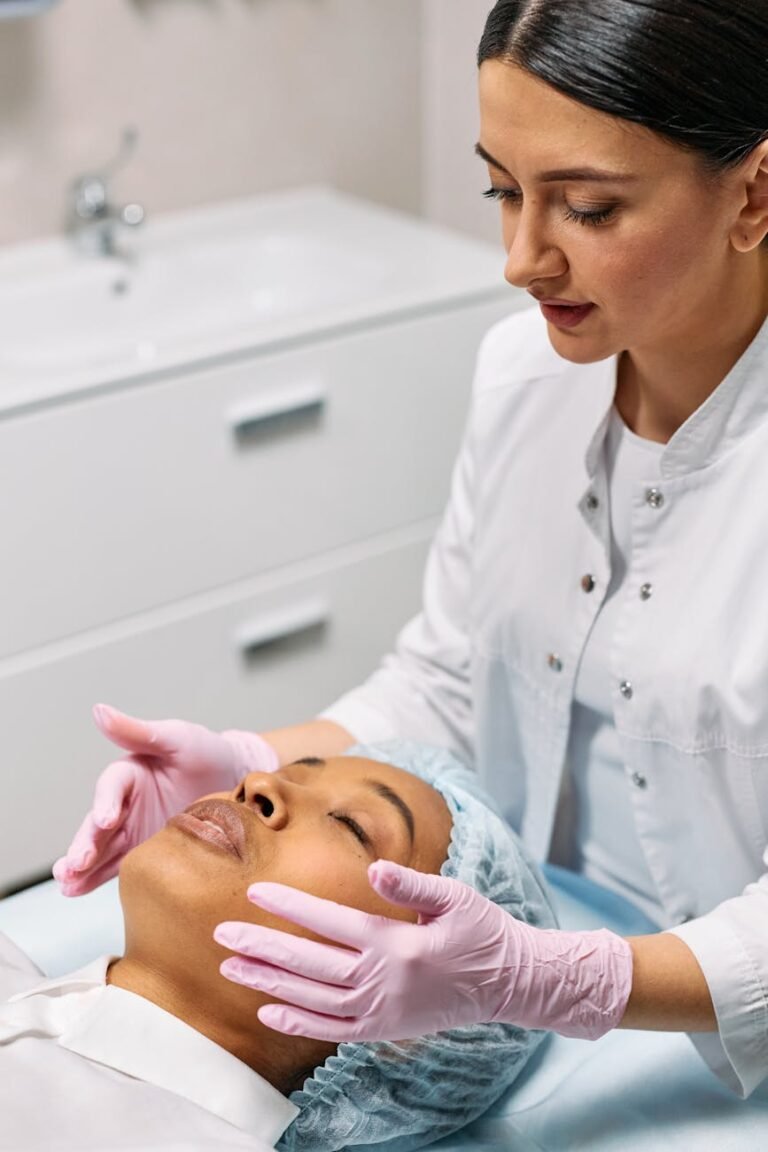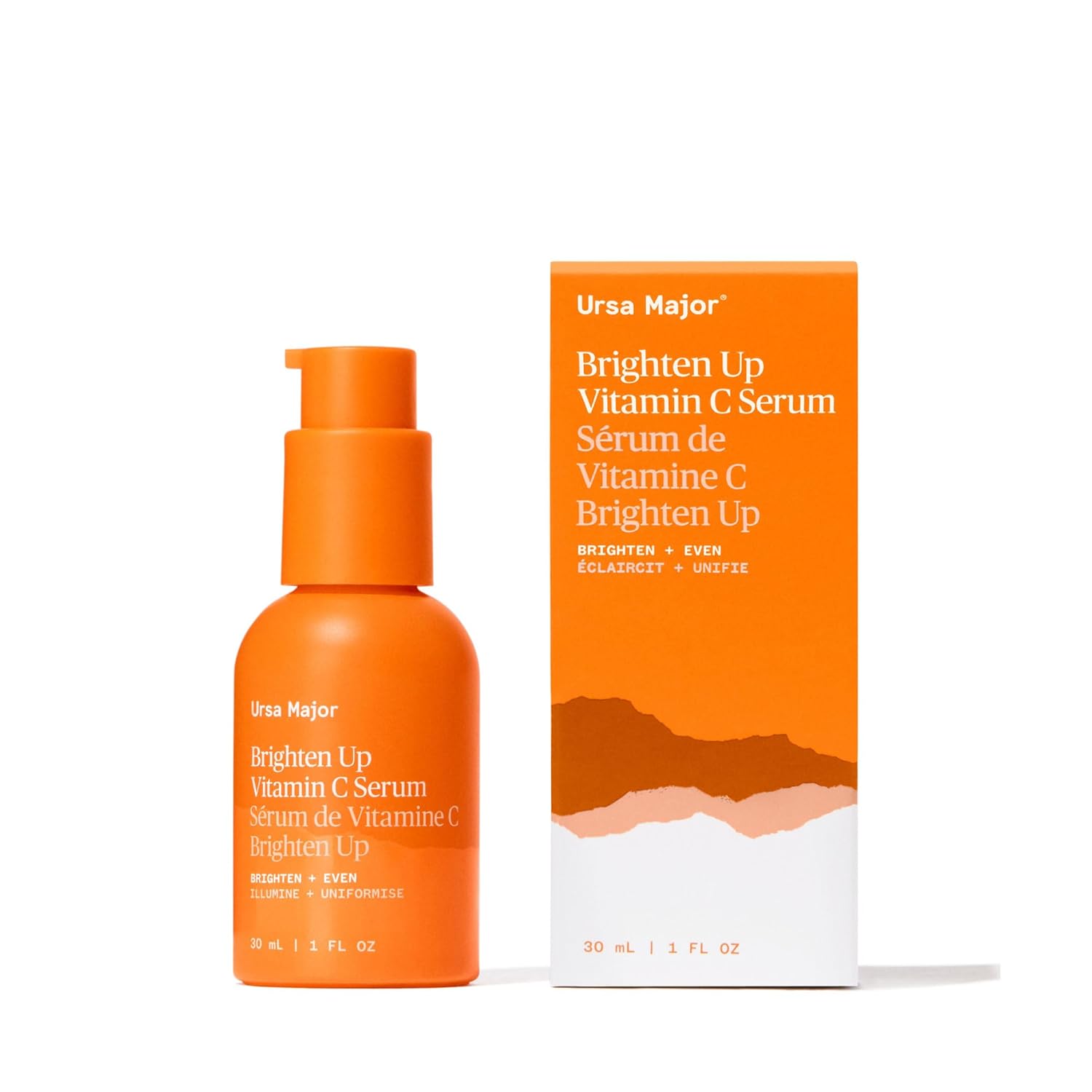What is Skin Inflammation? A Simple Guide
Think of skin inflammation as your skin’s way of saying “ouch!” It’s like a tiny alarm system going off when something is irritating your skin. This can happen for many reasons, from the environment around you to things you put on your face. When your skin is inflamed, it might look red, feel hot, swell up, or even have small bumps or dryness. It’s your skin’s natural defense mechanism, but when it happens too much, it can lead to issues like acne, eczema, rosacea, or just generally sensitive and uncomfortable skin.
Understanding why your skin is reacting is the first step to fixing it. Common culprits include harsh skincare products, pollution, stress, and even certain foods. The good news is that by making smart choices, you can help calm this internal alarm and bring peace back to your complexion.
Why Anti Inflammatory Skin Care Matters
For many people, tackling skin inflammation is key to achieving clearer, healthier-looking skin. When your skin is constantly inflamed, it can make existing problems worse and prevent your skin from healing properly. This can result in redness, breakouts, uneven texture, and a weakened skin barrier. A weakened skin barrier means your skin can’t hold onto moisture as well and is more easily irritated by outside factors.
Adopting an anti-inflammatory skincare routine helps to:
- Soothe redness and irritation.
- Calm active breakouts.
- Strengthen the skin barrier.
- Improve skin texture and tone over time.
- Promote overall skin health and resilience.
It’s all about creating a gentle, supportive environment for your skin to thrive. This approach focuses on healing and protecting, rather than just treating individual symptoms.
Identifying Signs of Skin Inflammation
How can you tell if your skin is inflamed? It’s usually not too hard to spot. Here are some common signs to look out for:
- Redness: This is often the most obvious sign. Your skin might look generally flushed or have distinct red patches.
- Itching or Burning: A persistent itchiness or a burning sensation can indicate inflammation.
- Swelling: Areas of your face might look puffy, especially around the eyes or cheeks.
- Dryness and Flakiness: Ironically, inflamed skin can also become dry and flaky as its barrier function is compromised.
- Bumps or Pimples: Inflammation is a key factor in acne. Red, swollen pimples are a clear sign.
- Sensitivity: Your skin might feel tender to the touch or react strongly to products that it previously tolerated.
If you notice any of these, it’s a good signal that your skin needs some gentle, anti-inflammatory care.
Key Ingredients for Calming Your Skin
The secret to an effective anti-inflammatory routine lies in the ingredients you choose. Certain ingredients are like gentle superheroes for stressed-out skin. They work to cool down redness, reduce swelling, and support your skin’s natural healing process. Here are some top players:
| Ingredient | What it does for your skin | Look for it in: |
|---|---|---|
| Centella Asiatica (Cica / Gotu Kola) | Helps repair damaged skin, soothes redness and irritation, and has antioxidant properties. Great for healing and calming. | Serums, moisturizers, sheet masks, toners |
| Niacinamide (Vitamin B3) | Reduces redness, calms inflammation, strengthens the skin barrier, and helps with pore appearance. A true multitasker! | Serums, moisturizers, cleansers, toners |
| Green Tea Extract | Rich in antioxidants called polyphenols, which fight inflammation and protect skin from environmental damage. Known for its soothing power. | Serums, toners, cleansers, masks |
| Chamomile | A classic soother! It contains compounds that help calm irritation and reduce redness. Very gentle and effective. | Toners, cleansers, mists, moisturizers |
| Allantoin | Moisturizes and helps skin heal. It’s known for its ability to soften skin and promote cell regeneration, which aids in calming. | Moisturizers, serums, toners |
| Licorice Root Extract | Helps visibly brighten skin, calm redness, and soothe irritation. It has potent anti-inflammatory properties. | Serums, moisturizers, masks |
| Oat Extract / Colloidal Oatmeal | Contains compounds that calm itching and inflammation. Excellent for dry, irritated, or eczema-prone skin. | Cleansers, moisturizers, masks, washes |
| Ceramides | These are essential lipids that make up your skin barrier. Replenishing them helps lock in moisture and protect skin from irritants. | Moisturizers, serums, cleansers |
Building Your Anti Inflammatory Skincare Routine: Step-by-Step
Creating an anti-inflammatory routine doesn’t have to be complicated. It’s all about gentle cleansing, targeted treatment, and consistent moisture. Follow these simple steps:
Step 1: Gentle Cleansing
Start your day and end your day with a mild cleanser. Harsh soaps or cleansers that strip your skin of its natural oils can actually cause more inflammation. Look for creamy, milky, or gel-based cleansers that are fragrance-free and specifically labeled for sensitive skin.
- What to do: Wet your face with lukewarm water (never hot!). Gently massage a small amount of cleanser onto your skin using your fingertips. Rinse thoroughly and pat your face dry with a soft towel.
- What to avoid: Foaming cleansers that feel very stripping, facial brushes with stiff bristles, and scrubbing too hard.
Step 2: Soothing Toning (Optional but Recommended)
A hydrating, alcohol-free toner can be a great addition. It helps to rebalance your skin’s pH after cleansing and can deliver beneficial calming ingredients. Look for toners with ingredients like chamomile, centella asiatica, or green tea.
- What to do: Pour a small amount onto a cotton pad and gently sweep it across your face, or simply pat it directly onto your skin with clean hands.
- What to avoid: Toners with alcohol or strong fragrances, as these can be irritating.
Step 3: Targeted Treatment (Serums or Essences)
This is where you can really pack in those anti-inflammatory powerhouses. Serums and essences are lightweight and can penetrate deeper into the skin to deliver concentrated ingredients. Choose a serum with ingredients like niacinamide, hyaluronic acid (for hydration), or licorice root extract.
- What to do: Apply a few drops to your fingertips and gently press into your skin. Let it absorb for a minute before moving to the next step.
- What to avoid: Serums with high concentrations of active ingredients like strong acids (retinoids, AHAs/BHAs) if your skin is very irritated; use these cautiously and slowly.
Step 4: Hydration is Key!
Proper hydration is crucial for a healthy skin barrier, which is essential for reducing inflammation. A good moisturizer will lock in all the goodness from your serum and protect your skin. Look for moisturizers containing ceramides, hyaluronic acid, or oat extract. A lighter lotion might be perfect for daytime, while a slightly richer cream could be used at night.
- What to do: Take a pea-sized amount and warm it between your fingertips. Gently pat and smooth it onto your face and neck.
- What to avoid: Heavy, occlusive ingredients if you tend to break out, or products with added fragrances.
Step 5: Sun Protection (Non-Negotiable!)
Sun exposure can worsen inflammation and redness. Always, always, always use sunscreen during the day, even if it’s cloudy. Look for mineral sunscreens (containing zinc oxide or titanium dioxide) as they are often gentler for sensitive and inflamed skin.
- What to do: Apply a broad-spectrum SPF 30 or higher generously as the last step in your morning routine. Reapply if you’re spending extended time outdoors.
- What to avoid: Sunscreens with high alcohol content or heavy fragrances.
Step 6: Weekly Calming Treatments
Incorporate a calming mask once or twice a week to give your skin an extra boost of soothing care. Look for masks with ingredients like colloidal oatmeal, centella asiatica, or aloe vera.
- What to do: Apply the mask after cleansing and follow the product instructions for how long to leave it on. Rinse gently and follow with your usual serum and moisturizer.
- What to avoid: Clay masks that can be drying or peeling masks if your skin is actively inflamed.
What to Avoid in Your Skincare Routine
Just as important as knowing what to use is knowing what to steer clear of. Certain ingredients and practices can be major triggers for skin inflammation. Being mindful of these will make a big difference in calming your skin.
- Harsh Exfoliants: Physical scrubs with rough particles (like apricot seeds) or chemical exfoliants with very high concentrations of acids (glycolic, salicylic) can damage your skin barrier and cause redness and irritation if overused.
- Alcohol (Denatured/SD Alcohol): Found in many toners and astringents, this can be very drying and irritating, stripping your skin of its natural oils.
- Fragrance (Parfum): This is a common irritant for many people. It’s often listed as “fragrance” or “parfum” on ingredient lists.
- Essential Oils: While natural, many essential oils (like citrus oils, peppermint, eucalyptus) can be highly irritating and cause contact dermatitis for sensitive skin.
- Sulfates (SLS/SLES): These are harsh detergents commonly found in foaming cleansers that can strip the skin and disrupt its barrier function.
- Over-Washing or Scrubbing: Too much friction and washing can strip natural oils and damage the skin.
- Hot Water: Washing your face with hot water can strip natural oils and increase redness.
Lifestyle Factors for Calmer Skin
Skincare isn’t just about what you apply to your face; what you’re doing and how you’re feeling also play a huge role! Your lifestyle habits can either help calm your skin or make inflammation worse. Here’s how to be mindful:
- Stress Management: Stress triggers the release of cortisol, a hormone that can increase inflammation throughout the body, including in your skin. Try deep breathing exercises, meditation, yoga, or spending time in nature to manage stress levels.
- Healthy Diet: What you eat can impact your skin. Focus on an anti-inflammatory diet rich in fruits, vegetables, healthy fats (like omega-3s found in fish and nuts), and whole grains. Limit processed foods, sugary drinks, and excessive dairy or red meat, which can be inflammatory for some people.
- Adequate Sleep: Your skin repairs itself while you sleep. Aim for 7-9 hours of quality sleep each night. Lack of sleep can impair your skin’s ability to heal and increase inflammation.
- Hydration: Drinking enough water throughout the day is essential for overall skin health and helps to keep your skin functioning optimally.
- Avoid Smoking: Smoking is incredibly inflammatory and can significantly damage your skin’s ability to repair itself, leading to premature aging and increased sensitivity.
Think of these as complementary treatments that support your topical skincare from the inside out. For more on how diet affects the skin, consider resources from reputable health organizations.
The National Institute on Aging offers insights into how lifestyle choices can impact health, which extends to skin well-being.
When to Seek Professional Help
While an anti-inflammatory skincare routine is fantastic for managing daily redness and irritation, there are times when you should consult a dermatologist. If your skin inflammation is severe, persistent, or accompanied by conditions like cystic acne, eczema flare-ups, or rosacea that isn’t improving, professional advice is best.
A dermatologist can accurately diagnose the cause of your inflammation and recommend prescription treatments or specialized care that over-the-counter products might not address. They can also help you create a tailored plan that’s safe and effective for your specific skin concerns.
Frequently Asked Questions (FAQ)
Q1: How quickly can I expect to see results from an anti-inflammatory skincare routine?
A: Results vary depending on your skin and the severity of inflammation. You might notice a subtle calming effect within a few days to a week of consistent use. More significant improvements in redness, texture, and breakouts typically take 4-12 weeks as your skin barrier strengthens and heals.
Q2: Can I use anti-inflammatory skincare if I have acne?
A: Absolutely! Many anti-inflammatory ingredients, like niacinamide and green tea extract, are excellent for acne-prone skin. They help reduce the redness and swelling associated with pimples without being overly harsh, which can actually worsen acne. Just be sure to choose non-comedogenic (non-pore-clogging) products.
Q3: My skin feels sensitive. Are all these ingredients safe?
A: The goal of anti-inflammatory skincare is to be gentle. Focus on products with minimal ingredients, free from fragrance and harsh alcohols. Patch-testing new products on a small area of your skin (like behind your ear or on your inner arm) before applying them to your face is always a good idea, especially if you have very sensitive skin.
Q4: What’s the difference between anti-inflammatory and hydrating ingredients?
A: While related, they serve different purposes. Hydrating ingredients (like hyaluronic acid, glycerin) primarily add moisture to the skin. Anti-inflammatory ingredients (like niacinamide, centella asiatica) work to calm redness, reduce irritation, and support the skin’s healing process. Often, the best products will combine both!
Q5: Can I use active ingredients like Vitamin C or Retinol with an anti-inflammatory routine?
A: Yes, but cautiously! Vitamin C can be an antioxidant that helps with inflammation, but some forms can be irritating. Retinol is highly effective but can cause initial dryness and redness. If using these, introduce them slowly (once or twice a week), use a lower concentration, and ensure you are also using plenty of soothing and hydrating products. Prioritize calming your skin first if it’s very inflamed.
Q6: Are natural or organic ingredients always better for anti-inflammatory care?
A: Not necessarily. While many natural ingredients are wonderfully soothing, some can still be irritating (like certain essential oils). The key is looking for specific effective anti-inflammatory ingredients, whether they are derived from nature or are synthesized in a lab. Look for ingredient lists you understand and avoid common irritants.
Conclusion
Embracing an anti-inflammatory skincare routine is a powerful way to soothe your skin, reduce redness, and reveal that naturally radiant complexion you’ve been working towards. By choosing gentle, calming ingredients and adopting a consistent, mindful routine, you’re supporting your skin’s health from the inside out. Remember to steer clear of common irritants, manage stress, and stay hydrated. Your skin is a reflection of your overall well-being, so treat it with kindness and patience.
Start incorporating these simple steps and ingredients, and you’ll be well on your way to achieving calmer



